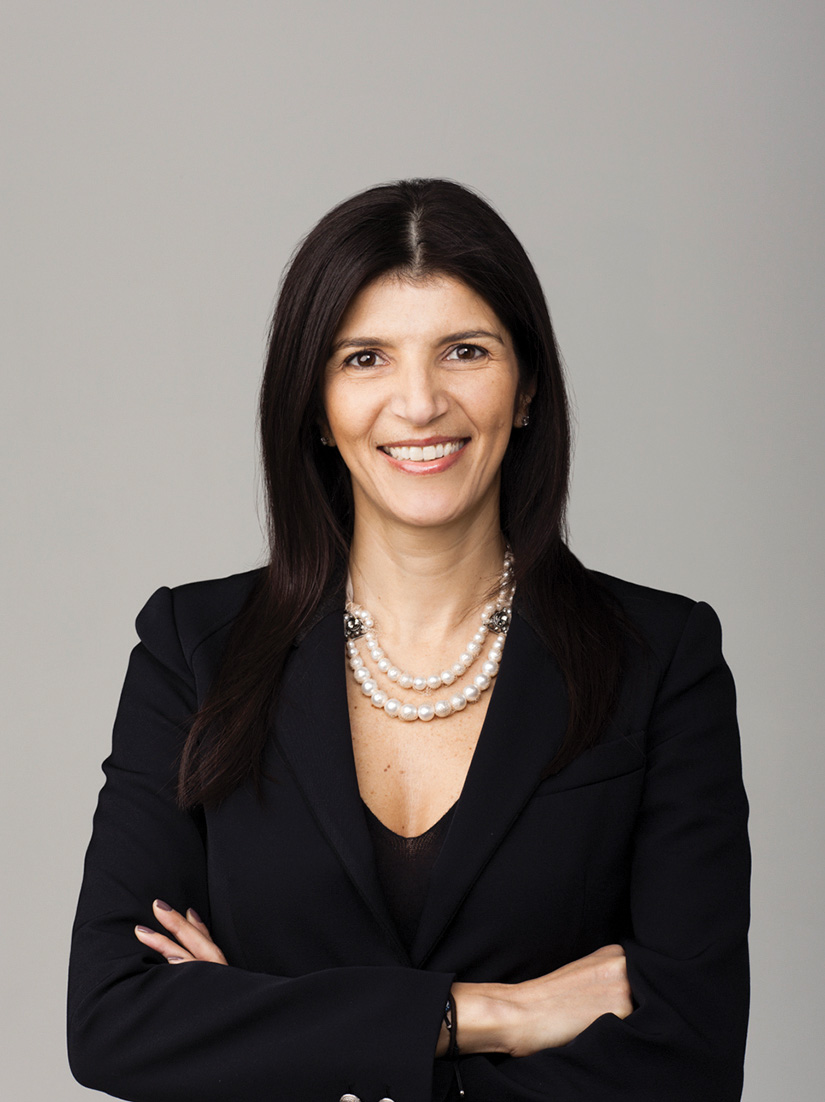
Spotify uses personalization tools driven by machine learning to track its listeners’ habits and introduce them to music they might like. Now, as vice president and head of the company’s content business, Sahar Elhabashi ’85 is helping apply those tools to its expansion into podcasts, which involve very different listening behavior.
Grappling with the project’s technical demands has brought Elhabashi back to her educational roots at MIT. “I’ve been in several meetings where people were putting differential equations on screen, and I was like, ‘Holy crap, I haven’t seen that symbol in 35 years!’” she says. “I wouldn’t understand a lot of the stuff we’re doing if I hadn’t taken those courses.”
Though Elhabashi was a self-professed “major math geek,” she came to campus not sure what she wanted to do with her love of numbers. Eventually she landed in macroeconomics, delighted by the way it used higher math to explain complicated phenomena: trade policies, exchange rates, the gross national product.
With an MBA from Columbia, Elhabashi spent most of the first 30 years of her career launching TV channels worldwide for MTV and Discovery—she loved transplanting the “kernel of an idea” to other markets and figuring out how to grow it profitably, she says—and helping build Condé Nast’s entertainment division into a behemoth worth hundreds of millions of dollars. She followed the division’s president, Dawn Ostroff, to Spotify in 2018.
Elhabashi brings the analytical rigor she honed on MIT p-sets to business strategy as Spotify eyes new acquisitions and moves into new markets. “Addressing problems from a quantitative perspective has always helped my business decision-making,” she says.
Those skills came in handy this spring as the covid-19 pandemic spread. Along with implementing partnerships to broadcast public service announcements for the World Health Organization and the Centers for Disease Control and Prevention, Elhabashi helped Spotify adapt to the public’s changing needs. Stay-at-home orders made commute playlists suddenly much less necessary than meditation podcasts. “We’re the best in terms of discovery,” she says of Spotify’s personalization tools—tools the company put to work to help listeners under quarantine expand their aural horizons.
Elhabashi expects that some of this expansion may persist as the pandemic fades. “Maybe you listen to 10 genres when you’re stuck at home, but when you have your same social schedule again, you go down to four,” she says. “But you used to listen to two. So you’ve doubled!”
Keep Reading
Most Popular
Large language models can do jaw-dropping things. But nobody knows exactly why.
And that's a problem. Figuring it out is one of the biggest scientific puzzles of our time and a crucial step towards controlling more powerful future models.
How scientists traced a mysterious covid case back to six toilets
When wastewater surveillance turns into a hunt for a single infected individual, the ethics get tricky.
The problem with plug-in hybrids? Their drivers.
Plug-in hybrids are often sold as a transition to EVs, but new data from Europe shows we’re still underestimating the emissions they produce.
Stay connected
Get the latest updates from
MIT Technology Review
Discover special offers, top stories, upcoming events, and more.